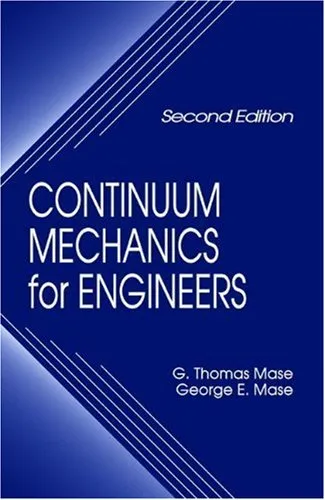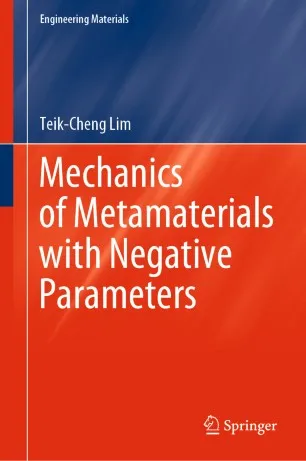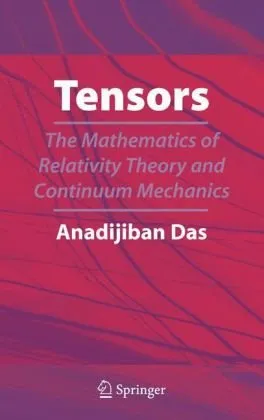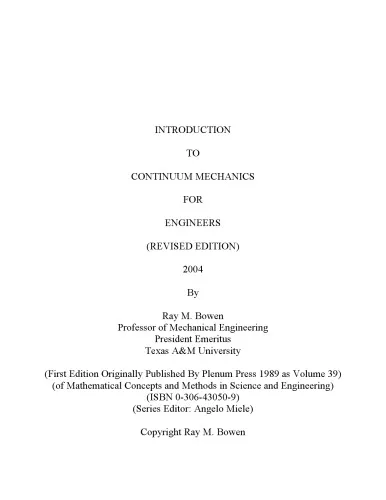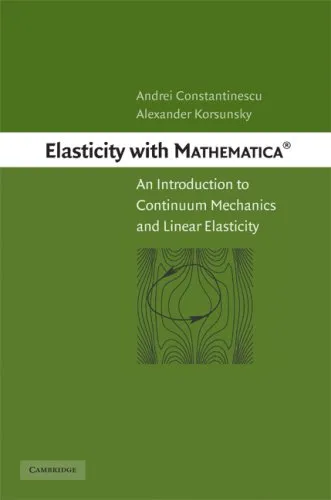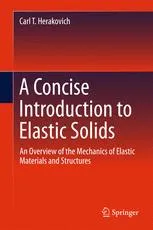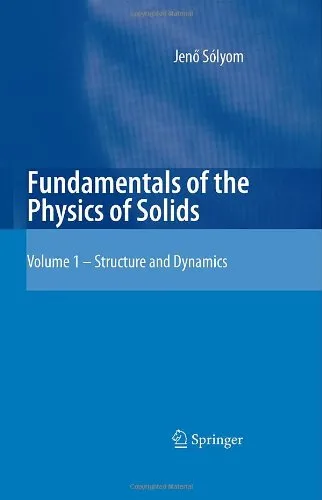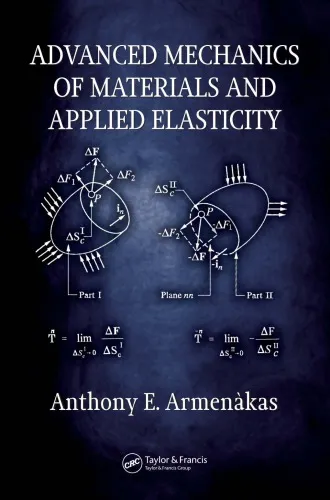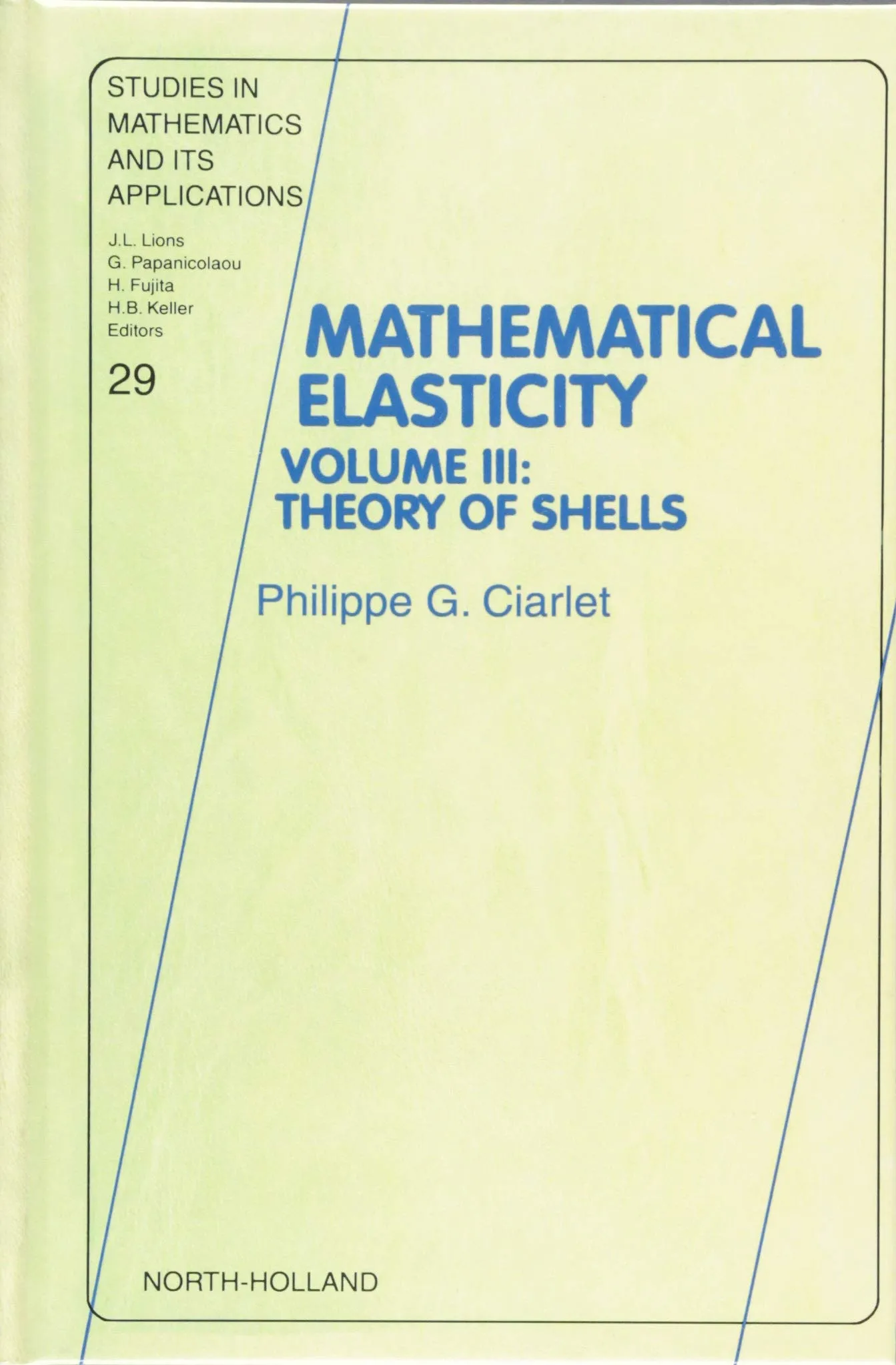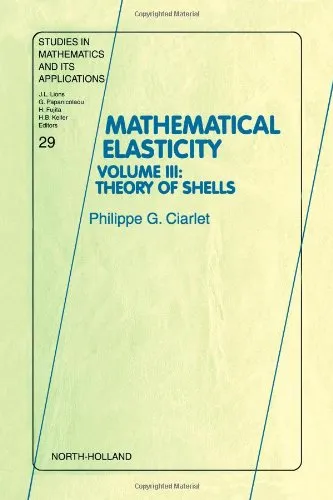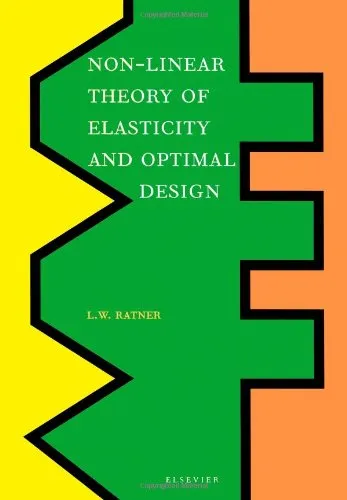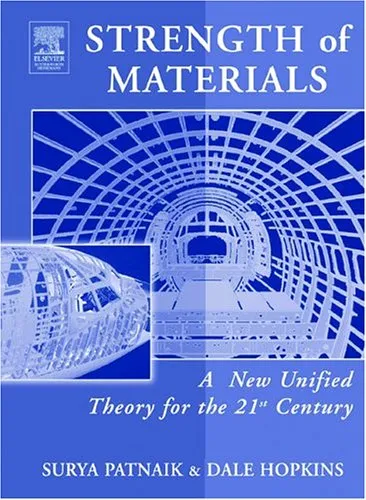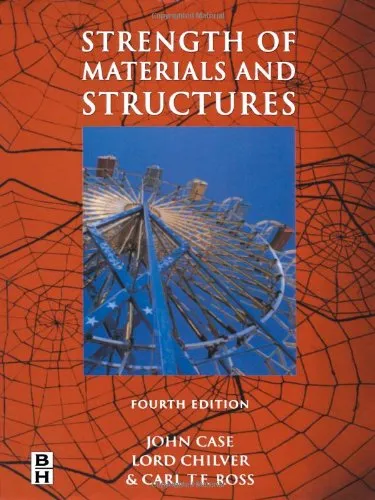Continuum mechanics for engineers
4.0
Reviews from our users

You Can Ask your questions from this book's AI after Login
Each download or ask from book AI costs 2 points. To earn more free points, please visit the Points Guide Page and complete some valuable actions.Related Refrences:
Introduction to "Continuum Mechanics for Engineers"
Continuum Mechanics for Engineers, authored by G. Thomas Mase and George E. Mase, is a comprehensive textbook designed to bridge the gap between abstract theoretical concepts and practical engineering applications. This book has been an essential resource for engineering students and professionals alike, presenting a meticulous exploration of the principles governing the behavior of materials subjected to various loading conditions. Let us delve into the details of what makes this book a cornerstone in the field of continuum mechanics.
Detailed Summary
The book begins with the fundamental concepts of continuum mechanics, introducing readers to the essentials of the field. It covers the basics of stress and strain, providing detailed explanations and mathematical formulations essential for grasping the material behavior under various external influences. A step-by-step approach is taken to explain the different types of tensors, which are crucial for understanding the transformations and deformations of materials.
Key topics covered include the mechanical properties of materials, the analysis of stress and strain, and the principles of material conservation. Emphasis is placed on the kinematics of deformation, equilibrium, and compatibility equations, continuity equations, and the thermodynamic laws as applicable to media. The book also delves into more advanced subjects such as elasticity, plasticity, and viscoelasticity, equipping readers with the knowledge required to tackle complex material behaviors under different loading scenarios.
The unique feature of this textbook is its application-centered approach. The authors have meticulously integrated numerous engineering examples, exercises, and problems, which help in reinforcing the theoretical concepts through practical scenarios. This feature ensures that learners do not merely memorize equations but understand their derivations and applications in real-life engineering challenges.
Key Takeaways
- Understanding the fundamental concepts of stress, strain, and tensor analysis.
- Ability to apply continuum mechanics principles to analyze and solve engineering problems.
- Comprehension of material behavior models including elasticity, plasticity, and viscoelasticity.
- Development of critical thinking and problem-solving skills through practical application-based examples.
Famous Quotes
“Continuum mechanics provides the language of description for the field of mechanical response of all materials. Becoming fluent in this language is essential for anyone advancing in engineering or applied physics.”
“The beauty of mathematics lies in its ability to describe the physical world with precision. In the study of mechanics, we find this truth resonates through every formula and equation set before us.”
Why This Book Matters
"Continuum Mechanics for Engineers" stands out due to its ability to connect complex theoretical constructs with tangible engineering applications. For students embarking on advanced engineering studies, this book provides the foundational knowledge necessary for further exploration into specialized topics like finite element analysis, computational mechanics, and material science.
Moreover, for professionals in the field, it serves as a vital reference guide, offering clarity on the governing equations and principles that dictate material behavior and engineering design. The balanced approach in the presentation of theory and practice helps ensure that the reader develops a robust and applicable understanding of continuum mechanics.
This book's importance extends beyond individual learning, as it propels innovative thinking and problem-solving skills that are critical for the evolution and application of engineering solutions to real-world challenges. Whether for academic purposes or practical implementations, "Continuum Mechanics for Engineers" remains an indispensable resource that captures and conveys the essence and breadth of the field.
Free Direct Download
You Can Download this book after Login
Accessing books through legal platforms and public libraries not only supports the rights of authors and publishers but also contributes to the sustainability of reading culture. Before downloading, please take a moment to consider these options.
Find this book on other platforms:
WorldCat helps you find books in libraries worldwide.
See ratings, reviews, and discussions on Goodreads.
Find and buy rare or used books on AbeBooks.
1332
بازدید4.0
امتیاز0
نظر98%
رضایتReviews:
4.0
Based on 0 users review
Questions & Answers
Ask questions about this book or help others by answering
No questions yet. Be the first to ask!
